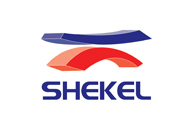 |  |
Frequently Asked Questions
Regulations |
|
In order to use scales and balances in an "approved" manner, that is for trade purposes and certain other commercial transactions where the approval of a scale or balance is a legal requirement, it is necessary to demonstrate the scales or balance meets certain standards.
In the USA this is done through the NTEP approval process. In Europe and many other countries it is done by showing compliance with OIML Recommendation 76 (R76). |
|
OIML
 |
|
The International Organization of Legal Metrology was created to promote the global harmonization of legal metrology procedures. The members of OIML are countries throughout the world that use the OIML Recommendations for the creation of National Standards for Metrology. Within the European Union the European standard EN45501 is based upon the OIML R76 for Non-Automatic Weighing Equipment.
When a scale or balance is approved it has been tested by an approved Standards Laboratory to meet the published standards. These standards cover the metrology of the weighing equipment, operation, standards of construction, security, labeling and testing of Electromagnetic characteristics. The scales will have labels identifying conformance, be fitted with methods to seal the calibration if required and be issued with a Certificate of Conformity.
|
|
EC Type Approval
|
|
EC Type Approval can be granted to all electronic and most mechanical non-automatic weighing instruments (NAWI). The instrument has to meet the essential requirements contained in the EC Directive 90/384/EEC as amended, and implemented into UK Law under the 1995 Regulations (SI 1995 No. 1907). The most common route for ensuring the essential requirements of the Directive are met is through the European Standard for NAWIs, BS EN 45501.
EC Type Approval is demonstrated by meeting the requirements of BS EN 45501. As BS EN 45501 is equivalent to OIML R76, it is common that the test laboratory applies for the OIML certificate based upon the test results.
The healthweigh™ medical scales meet all the provisions of directive 90/384/EEC relating to non-automatic weighing instruments and hold accuracy class III certificate.
|